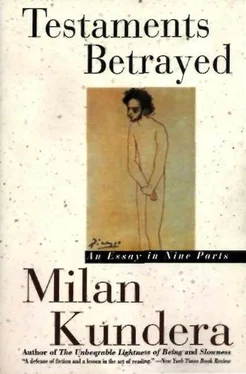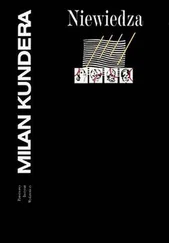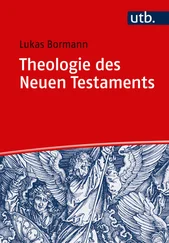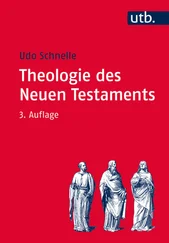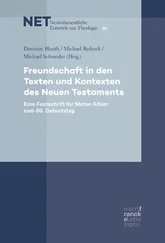In the Shadow of Great Principles
Starting with his Midnight's Children, which in its time (in 1980) stirred unanimous admiration, no one in the English-language literary world has denied that Rushdie is one of the most gifted novelists of our day. The Satanic Verses, appearing in English in September 1988, was greeted with the attention due a major writer. The book received these tributes with no anticipation of the storm that was to burst some months later, when the Imam Khomeini, the master of Iran, condemned Rushdie to death for blasphemy and sent killers after him on a chase whose end no one can predict.
That happened before the text could be translated. Thus everywhere except in the English-language world, the scandal arrived before the book. In France, the press immediately printed excerpts from the still unpublished novel to show the reasons for the condemnation. Completely normal behavior, but fatal for a novel. Represented exclusively by its incriminated passages, it was, from the beginning, transformed from a work of art into a simple corpus delicti.
We should not denigrate literary criticism. Nothing is worse for a writer than to come up against its absence. I am speaking of literary criticism as meditation, as analysis; literary criticism that involves several readings of the book it means to discuss (like great pieces of music we can listen to time and again, great novels too are made for repeated readings); literary criticism that, deaf to the implacable clock of topicality, will readily discuss works a year, thirty years, three hundred years old; literary criticism that tries to apprehend the originality of a work in order thus to inscribe it on historical memory. If such meditation did not accompany the history of the novel, we would know nothing today of Dostoyevsky, or Joyce, or Proust. For without it a work is surrendered to completely arbitrary judgments and swift oblivion. Now, the Rushdie case shows (if proof is still needed) that such meditation is no longer practiced. Imperceptibly, innocently, under the pressure of events, through changes in society and in the press, literary criticism has become a mere (often intelligent, always hasty) literary news bulletin.
About The Satanic Verses, the literary news was the death sentence on the author. In such a life-and-death situation, it seems almost frivolous to speak of art. What is art, after all, when great principles are under attack? Thus, throughout the world, all discussion concentrated on questions of principle: freedom of expression; the need to defend it (and indeed people did defend it, people protested, people signed petitions); religion; Islam and Christianity; but also this question: does a writer have the moral right to blaspheme and thereby wound believers? And even this problem: suppose Rushdie had attacked Islam only for publicity and to sell his unreadable book?
With mysterious unanimity (I noticed the same reaction everywhere in the world), the men of letters, the intellectuals, the salon initiates, snubbed the novel. They decided to resist all commercial pressure for once, and they refused to read a work they considered simply a piece of sensationalism. They signed all the petitions for Rushdie, meanwhile deeming it elegant to say, with a supercilious smile: "His book? Oh no, no, no! I haven't read it." The politicians took advantage of this curious "state of disgrace" of a novelist they didn't like. I'll never forget the virtuous impartiality they paraded at the time: "We condemn Khomeini's verdict. Freedom of expression is sacred to us. But no less do we condemn this attack on religious faith. It is a shameful, contemptible attack that insults the soul of peoples."
Of course, no one any longer doubted that Rushdie actually had attacked Islam, for only the accusation was real; the text of the book no longer mattered, it no longer existed.
A situation unique in history: Rushdie belongs by origin to a Muslim society that, in large part, is still living in the period before the Modern Era. He wrote his book in Europe, in the Modern Era-or, more precisely, at the end of that era.
Just as Iranian Islam was at the time moving away from religious moderation toward a combative theocracy, so, with Rushdie, the history of the novel was moving from the genteel, professorial smile of Thomas Mann to unbridled imagination drawn from the rediscovered wellspring of Rabelaisian humor. The antitheses collided, each in its extreme form.
From this viewpoint, the condemnation of Rushdie can be seen not as a chance event, an aberration, but as the most profound conflict between two eras: theocracy goes to war against the Modern Era and targets its most representative creation: the novel. For Rushdie did not blaspheme. He did not attack Islam. He wrote a novel. Rut that, for the theocratic mind, is worse than an attack: if a religion is attacked (by a polemic, a blasphemy, a heresy), the guardians of the temple can easily defend it on their own ground, with their own language; but the novel is a different planet for them; a different universe based on a different ontology; an infernum where the unique truth is powerless and where satanic ambiguity turns every certainty into enigma.
Let us emphasize this: not attack but ambiguity. The second part of The Satanic Verses (the incriminated part, which evokes Mohammed and the origin of Islam) is presented in the novel as a dream of Gibreel Farishtas, who then develops the dream into a cheap movie in which he himself will play the role of the archangel. The story is thus doubly relativized (first as a dream, then as a bad film that will flop) and presented not as a declaration but as a playful invention. A disagreeable invention? I say no: it showed me, for the first time in my life, the poetry of the Islamic religion, of the Islamic world.
We should stress this: there is no place for hatred in the relativistic universe of the novel: the author who writes a novel in order to settle scores (personal or ideological) is headed for total and certain aesthetic ruin. Ayesha, the girl who leads the hallucinating villagers to their deaths, is of course a monster, but she is also seductive, wondrous (haloed by the butterflies that accompany her everywhere), and often touching; even in the portrait of an emigre imam (an imaginary portrait of Khomeini), there is an almost respectful understanding; Western modernity is viewed with skepticism, never presented as superior to Oriental archaism; the novel "historically and psychologically explores" sacred old texts, but it also shows how much they are degraded by TV, advertising, the entertainment industry; and the left-wing characters, who deplore the frivolity of this modern world-do they at least enjoy the author's full sympathy? No indeed, they are miserably ridiculous, and as frivolous as the frivolity around them; no one is right and no one entirely wrong in the immense carnival of relativity that is this work.
Therefore, with The Satanic Verses, the art of the novel as such is incriminated. That is why, in this whole sad story, the saddest thing is not Khomeini's verdict (which proceeds from a logic that is atrocious but consistent); rather, it is Europe's incapacity to defend and explain (explain patiently to itself and to others) that most European of the arts, the art of the novel; in other words, to explain and defend its own culture. The "children of the novel" have abandoned the art that shaped them. Europe, the "society of the novel," has abandoned its own self.
It does not surprise me that the Sorbonne theologians, the sixteenth-century ideological police who kindled so many stakes, should have made life so hard for Rabelais, forcing him often to flee and hide. What seems to me far more amazing and admirable is the protection provided him by the powerful men of his time, Cardinal du Bellay, for instance, and Cardinal Odet, and above all Francois I, the king of France. Were they seeking to defend principles? Freedom of expression? Human rights? They had a better motive: they loved literature and the arts.
Читать дальше
